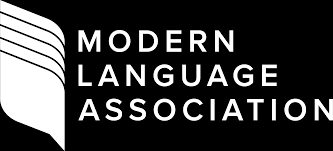
Emblematic Spaces, Embodied Memories: Geo/graphies in the Black Atlantic Imaginary (PAMLA 2022, Los Angeles)
PAMLA 2022. Los Angeles, Friday, November 11-Sunday, November 13
Special Session
"Emblematic Spaces, Embodied Memories: Geo/graphies in the Black Atlantic Imaginary."
This panel will explore how black Atlantic writers reappropriate emblematic spaces of the black Atlantic, challenging the univocal narrative of History with the multiplicity of individual memories in order to reveal the true complexity of a globalizing world in perpetual motion. By choosing to represent in their novels emblematic places of the black Atlantic such as the slave ship, Harlem, or even the favela, black writers of Africa and its diasporas question the spectral presence of "un passé colonial qui ne passe pas"[2]--a bitter, unending past–and forge a post-memory of the colonization and enslavement. These postcolonial geo-graphies become sites for negotiating a traumatic, potentially paralyzing past, which writing galvanizes and transforms into a liberating force.
Call for Paper
Long eclipsed by the primacy accorded to time and its corollary, History, in the wake of the spatial turn geographical thought has earned wide recognition in the humanities and social sciences. This spatial turn has allowed us to question a linear conception of time that had previously been perceived as the only possible meaning of our relationship to temporality. But historical time is incapable of translating the haunting presence of memories of colonization, slavery, and the slave trade within the Black Atlantic imagination. Black Atlantic thinkers associate this past, which is reactivated by the present, with the image of the abyss (Glissant) and the volcano (Césaire)--symbols that highlight the silences of History and the void that threatens to engulf everything if voices of the black Atlantic do not fill the gap. Whether seen as a site or as a non-site of memory, whether internalized or perceived as an absolute exteriority, space informs who we are and in turn, we contribute to shaping it. Indeed, this is E. Soja’s famous socio-spatial dialectic, which finds one of its most blatant illustrations within the literatures of the Black Atlantic. Unlike geographical maps, literary representations of space can even mobilize the five senses, our entire being[1]. Writing space(s) thus allows the emergence of a polyphony of memories that have long been buried and are now excavated through writing. By choosing to represent in their novels emblematic places of the black Atlantic such as the slave ship, Harlem, or even the favela, black writers of Africa and its diasporas question the spectral presence of "un passé colonial qui ne passe pas"[2]--a bitter, unending past–and forge a post-memory of the colonization and enslavement. These postcolonial geo-graphies become sites for negotiating a traumatic, potentially paralyzing past, which writing galvanizes and transforms into a liberating force. This panel will explore how black Atlantic writers reappropriate emblematic spaces of the black Atlantic, challenging the univocal narrative of History with the multiplicity of individual memories in order to reveal the true complexity of a globalizing world in perpetual motion.
[1] What Bertrand Westphal calls polysensoriality.
[2] To borrow historian Pascal Blanchard’s term.
Special Session chairs:
Aurélia Mouzet: aureliam@arizona.edu
Lucy Swanson: lucyswanson@arizona.edu